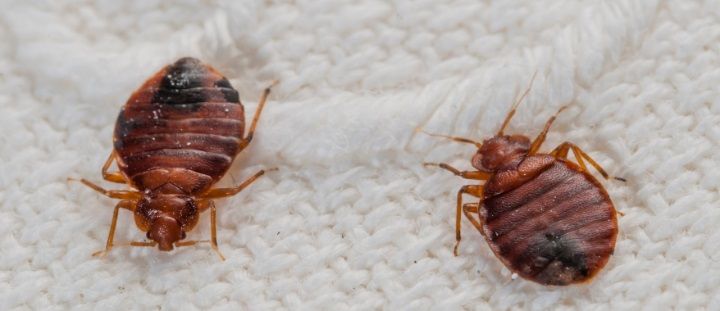Pests are a common problem in homes, offices, and commercial spaces, causing damage and spreading diseases. Effective pest control solutions help eliminate infestations and prevent future problems. Among various pests, bed bugs are particularly troublesome due to their resilience and rapid spread. Proper bed bug treatment is essential to eradicate these insects permanently.
This comprehensive guide covers everything you need to know about pest control, types of infestations, methods for eliminating pests, and the best ways to conduct bed bug treatment to keep your home pest-free.
Understanding Pest Control
What is Pest Control?
Pest control refers to the process of managing, eliminating, and preventing pests such as insects, rodents, and other unwanted creatures. It involves various techniques, including chemical treatments, biological methods, and preventive measures.
Common Types of Pests
There are several categories of pests, each requiring different pest control strategies:
1. Insects
- Cockroaches – Spread bacteria and allergens.
- Ants – Cause food contamination.
- Termites – Destroy wooden structures.
- Mosquitoes – Carry diseases like malaria and dengue.
2. Rodents
- Mice and Rats – Damage property and spread diseases.
3. Bed Bugs
- Bed Bugs – Cause itchy bites and are difficult to eliminate without proper bed bug treatment.
4. Other Pests
- Spiders – Some are venomous and can cause allergic reactions.
- Flies – Spread bacteria and contaminate food.
The Importance of Pest Control
Effective pest control is crucial for:
- Health Protection – Prevents diseases carried by pests.
- Property Preservation – Stops structural damage from termites and rodents.
- Food Safety – Prevents contamination.
- Comfort and Hygiene – Reduces stress caused by infestations.
Methods of Pest Control
1. Chemical Pest Control
This involves using insecticides, pesticides, and fumigation to eliminate pests. It is commonly used for:
- Cockroach Control – Sprays and baiting systems.
- Termite Treatment – Liquid termiticides and soil treatments.
- Mosquito Control – Fogging and larvicides.
2. Biological Pest Control
This method uses natural predators to control pest populations. Examples include:
- Ladybugs to control aphids.
- Cats to reduce rodent populations.
3. Mechanical and Physical Pest Control
- Traps – For rodents and flying insects.
- Ultrasonic Repellents – Used for rodents and insects.
- Barrier Methods – Sealing cracks and gaps.
4. Natural and Organic Pest Control
Using non-toxic substances such as:
- Essential Oils – Peppermint oil for repelling spiders.
- Diatomaceous Earth – Effective against ants and bed bugs.
Bed Bug Treatment: How to Get Rid of Bed Bugs
What Are Bed Bugs?
Bed bugs are small, reddish-brown insects that feed on human blood. They hide in mattresses, furniture, and cracks, making them difficult to detect. Effective bed bug treatment is necessary to eliminate them completely.
Signs of a Bed Bug Infestation
- Red, Itchy Bites – Usually in clusters or lines.
- Blood Stains on Sheets – From crushed bed bugs.
- Dark Spots on Mattress – Bed bug excrement.
- Musty Odor – A strong, unpleasant smell.
Best Bed Bug Treatment Methods
1. Heat Treatment
Exposing bed bugs to temperatures above 50°C kills them at all life stages. Professional heat treatment is one of the most effective bed bug treatment methods.
2. Steam Cleaning
High-temperature steam kills bed bugs in mattresses, carpets, and upholstery.
3. Chemical Treatments
Using insecticides like pyrethroids and neonicotinoids helps eliminate infestations.
4. Vacuuming and Cleaning
- Vacuum mattresses, carpets, and furniture regularly.
- Wash bedding and clothes in hot water and dry on high heat.
5. Encasing Mattresses and Furniture
Using protective covers prevents bed bugs from hiding in mattresses and pillows.
6. Natural Remedies
- Diatomaceous Earth – Kills bed bugs by dehydrating them.
- Lavender and Tea Tree Oil – Repel bed bugs naturally.
Preventing Pest Infestations
1. Home Maintenance
- Seal cracks and gaps in walls and floors.
- Repair leaks to eliminate moisture.
2. Proper Food Storage
- Store food in airtight containers.
- Dispose of garbage regularly.
3. Regular Cleaning
- Vacuum frequently.
- Declutter to reduce hiding places for pests.
4. Routine Inspections
- Check for signs of pests in mattresses, furniture, and kitchen areas.
FAQs
What is the best pest control method for homes?
A combination of chemical, mechanical, and natural methods works best.
How often should I do pest control at home?
Every 3-6 months is ideal, depending on infestation risks.
Can bed bugs live in pillows?
Yes, bed bugs can hide in pillows and pillowcases.
What kills bed bugs instantly?
Heat treatments above 50°C and strong insecticides.
Do ultrasonic pest repellents work?
They can help but are not a guaranteed solution.
How can I prevent bed bug infestations?
Regular cleaning, vacuuming, and sealing cracks help prevent infestations.
Are DIY pest control methods effective?
They work for minor infestations but professional treatment is better for severe cases.
Is bed bug treatment expensive?
It varies, but professional heat treatments can be costly.
What is the safest pest control method?
Biological and natural methods are the safest.
How long does pest control take to work?
Results can be seen within days, but some infestations take weeks to eliminate.
Are chemical pest control treatments safe for pets?
Some are safe, but always check product labels and use pet-friendly options.
Can I stay at home during pest control treatment?
It depends on the chemicals used. Some require you to leave for a few hours.
Does vacuuming remove bed bugs?
Vacuuming helps but does not eliminate an entire infestation.
Do bed bugs spread disease?
They don’t spread diseases but cause discomfort and allergic reactions.
How long do bed bugs live without feeding?
They can survive without feeding for several months.
Conclusion
Effective pest control and bed bug treatment are essential for maintaining a healthy and comfortable living environment. By following the right strategies, from chemical treatments to natural remedies, you can prevent and eliminate infestations for good.

